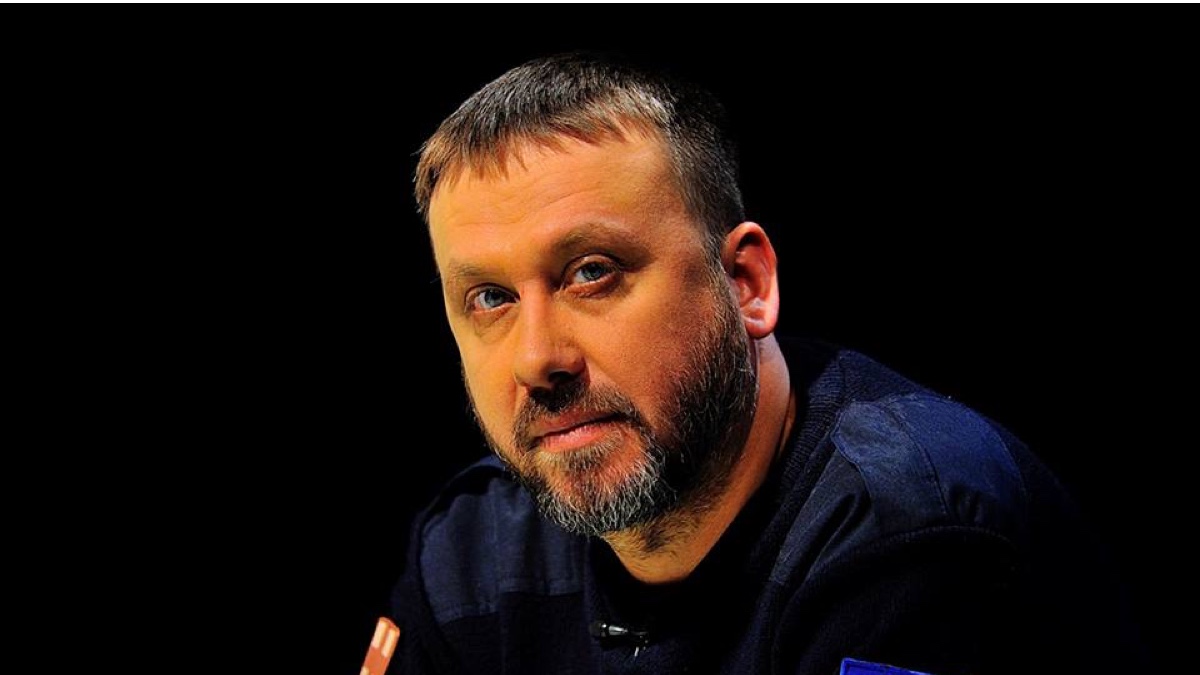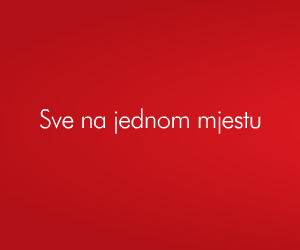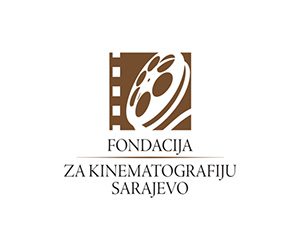
15/10/2022
For us Ukrainians this is a war for survival of the nation
Journalist, film and theatre director Yevhen Stepanenko has been engaged in media and creative industries in Ukraine for more than 20 years. Two months before the big war he came to Croatia to work on a new film for a Ukrainian television. Unfortunately, the war stopped the project and Stepanenko continued to work as a correspondent from Croatia for several Ukrainian media. In Croatia, he also started work on his feature film, 'Alphabet of War', and in addition to numerous obligations, he also took on the role of a jury member at the 23rd Mediterranean Film Festival.*Is this your first visit to Herzegovina and how familiar are you with the Mediterranean Film Festival?
I’ve been only to the Sarajevo Film Festival, but this is my first visit to Herzegovina. The Mediterranean Film Festival is known to me from reviews in the media. I have seen the films in the competition program and the selection is really good. The selection of projects well characterizes the trends and themes of contemporary documentary film.
You are a director, screenwriter, journalist and an anchor with rich career. What is a challenge for you today?
The main challenge for all the people from creative and film industry from Ukraine is the war. It is a popular thesis that culture can be outside the politics. But we don't live in some other world, we live in a reality in which war and peace, birth and death happen at the same time.My whole life as a director I have been studying this simultaneous reality. Now the topic of the existence of civilians in war, the transformation of civilians into soldiers, and the topic of families separated by war is very important to me.
The war ‘captured’ you in Croatia?
Yes, two months before the big war and the Russian attack on Ukraine I came to Croatia to prepare for making a film about Croatia for a Ukrainian television. I had planned to make a documentary series about the challenges that Croatia and other countries in the region faced after the war. This experience is very important for Ukraine. Unfortunately, the war stopped this project. From the very beginning, a large number of people have compared the war in Ukraine with what happened in our country in the 1990s. Do you see the similarities too?All wars are somehow similar to one another. There is always one side attacking, the other defending, someone always wins and someone looses. The main similarity between our war and the war in Croatia and the region is that the war is in Ukraine and the war here is a war for independence, that is, the defence of its territories.
Considering that you are a journalist yourself, how would you rate media coverage from Ukraine? How objective and true is the picture we get?
The war in Ukraine is called the “hybrid warfare”. This is one of the first wars that are actually fought online. The battles often have live streaming on Facebook or tiktok, everybody can see the war from the inside, through the soldiers’ eyes. This openness of the war and at the same time the uncontrolled release of first-hand information on the front line - gives an opportunity to check whether the media is telling the truth about the war. This is a dangerous war for the media and journalists. 32 journalists have already died, and unfortunately, I don't think these are the last victims. In these conditions, the work of media and documentarians during the war is a real stunt.
An actor at the head of the state at a historic moment. What is your opinion about Volodymyr Zelensky as an actor and Volodymyr Zelensky as the president of the country? Did you perhaps have the opportunity to collaborate with him in one of your cultural projects?
For Zelensky, the word actor has long been a thing of the past. He is the president of a country fighting a war, and according to the majority of Ukrainians, 71 percent support his actions - Zelensky is doing a good job.For everyone who knows him personally, it was not a shock - even before the war, Zelensky was a successful, strong producer of his own holding company that produced films and TV series and made money.Of course, there were certain questions about his qualifications for the presidency, but the war quickly taught him, as well as millions of Ukrainians. And it continues to teach. We worked with him on several projects, always very professionally and responsibly.
To what extent are you in contact with fellow cultural workers in Ukraine today, to what extent did all these events make life difficult for them and set the cultural scene back in general?
During the war, the British Prime Minister Churchill was presented with the country's budget. Going through the document he asked: - And where are the expenditures for culture?- So, the war is going on! What culture?- If there is no culture, why are we fighting? – Churchill was surprised. Of course, from the current point of view financing and supporting culture is not in the first place. But a coin always has two sides - and now we see Ukrainian culture and cinema finding its way in the world, and the world discovering Ukraine and its culture.I think it is a big challenge not only for Ukraine, the search for one's own cultural "I" during the war. Everyone is now looking for a new "I", "who we are", "where we are now and where we are going".
As a Ukrainian, how do you see the near future of your country? Do you think that peace can be seen in any time soon?
For Ukraine, the word "peace" is a synonym for the word "victory". Understand, finally - the world will no longer be the same as before. Europe must accept a new reality in which war cannot be stopped at the will of officials in Brussels or the USA. For us, this is a war for the survival of the nation. I think even if Putin uses nuclear weapons, it will be a long war. Maybe a year or more.


